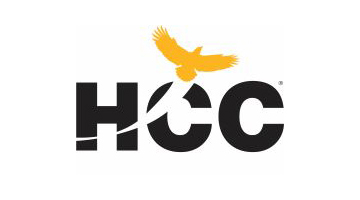There’s not a lot of non-election news happening right now, but there was this.
Houston Community College officials are working to integrate virtual reality and more digital advances into every classroom and program by next fall, one of several goals that Chancellor Margaret Ford Fisher shared at the institution’s recent State of the College address.
The speech on Friday came about a year into Ford Fisher’s tenure at the head of the college system. HCC is building off enrollment growth following severe declines during the COVID-19 pandemic: More than 53,000 students enrolled this fall, up more than 7% from last fall, according to college data.
[…]
College officials will have a recommendation to the Board of Trustees by March or April, Ford Fisher said. On Friday, the chancellor called a name change a “must,” even though trustees were divided on the idea at a summer board meeting.
Several members had questioned making a new name a priority while they attempt to raise graduation and retention numbers for better funding from the Legislature. Former revenue formulas were mostly based on enrollment, but the performance-based metrics have not benefited HCC to the extent other institutions have seen.
A few board members had agreed with Ford Fisher, who raised the topic after HCC launched new four-year degrees in artificial intelligence and robotics as well as in healthcare management. They said dropping “community” from the name would appeal to a broader set of students and their potential employers, and they pointed to other community colleges that have changed their names to reflect status.
HCC is also undergoing a review to find where it might add new bachelor’s degrees, though Ford Fisher said the school is looking at labor market demands that are not in competition with local four-year universities.
[…]
HCC is reinventing its urban transportation programs, particularly related to flying taxis, self-driving cars and electric vehicles, according to the chancellor.
Those modes of transportation will require new infrastructure, including in maintenance and construction, that will require new skillsets, she said.
I remain ambivalent about the possible name change. I don’t object, but I do agree that there are higher priorities. I’d also like to see some data to suggest that changing the name, in particular dropping “Community” from the name, would enable the school to appeal to a broader audience. I’m not disputing the assertion, I’m just not accepting it as a given. Surely there’s been some studies, a survey, something to add some evidence to this?
On the subject of flying taxi maintenance, that does indeed seem like a wise direction to go. I’m curious how much of this new curriculum HCC would need to develop on their own and how much they would expect to inherit from the nascent manufacturers and providers. Are there other schools out there with the same idea, and if so how much can HCC collaborate with them? I don’t know what my expectations are here, but I’m very interested to hear more.


I am not in favor of a name change. Moreover, I am not in favor of ignoring the non-degree seeking community who want to continue life-long learning. The overemphasis on degree curriculum has significantly hurt the “community” aspect . For example, HCCS leadership eviscerated a once-great jazz curriculum that offered both younger and older students opportunities to learn.
San Jacinto and Lone Star both dropped the “Community” from their name. Anecdotal evidence from student comments has corroborated that at least some students prefer not to have the “Community” word on their transcript. They think it cheapens the value of their progress. The idea is that a community college isn’t a real college. It has never been clear just how big a difference such a name change would make.
HCC has long had a major problem with drop outs. Around 70-75% of incoming HCC students tested deficient in Math or Language Arts or both. This forced them to take a remedial course in the deficient field before they could proceed with college level work. These remedial courses cost the same as the college level courses, but received no college credit. Only about 1/3 of these deficient students succeeded in passing the remedial course. Eventually they got discouraged and dropped out. This meant that around half of the incoming students never got to do actual college level course work despite paying considerable amounts of money. When I was on the HCC Board, I got them to institute a program called a corequisite system whereby the students took the remedial course at the same time as the corresponding college level course. At the time I left the Board, HCC had raised the successful remediation rate from 1/3 to about 2/3. I don’t know what the current success rate is as the Administration stopped reporting it when I left the Board. If they are having trouble with reimbursement rates from the State, that may indicate that this success rate has declined.
I was on the Board when HCC first approved offering several bachelor degrees. I was and still am skeptical of community colleges getting into the four-year degree business. There are several reasons for this. First, bachelor degree programs, if done properly, are significantly more expensive than Associate degree programs. They require a substantial portion of the faculty to have Ph.D.s and generally require more expensive instructional resources. Second, they put the community college in direct competition with the baccalaureate programs in the area that are supposed to be their partners. Third, they divert resources from work certification programs that 4-year colleges aren’t interested in doing. Given the poor level of funding of community colleges by the Texas Legislature, I believe the community colleges should stay focused on their traditional role of work certification and inexpensive 2-year degrees. HCC can stand considerable improvement in both of those areas.